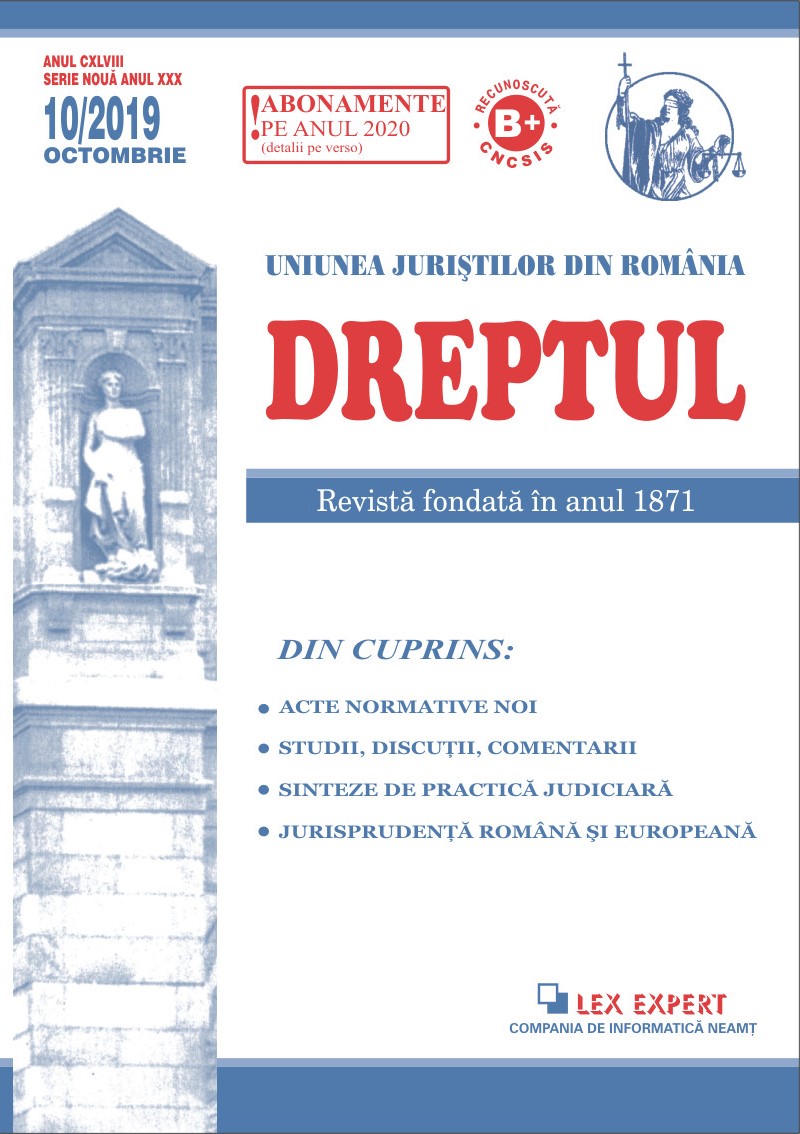Incidente cu privire la proba literală din perspectiva Codului de procedură civilă român și a Codului de procedură civilă francez (I). Procedura verificării înscrisurilor
Incidents with regard to the literal evidence from the perspective of the Romanian Civil Procedure Code and the French Civil Procedure Code (I). Procedure of verification of the written documents
Author(s): Maria FodorSubject(s): Civil Law
Published by: Uniunea Juriștilor din România
Keywords: verification of scripts; written document under private signature; Romanian Civil Procedure Code; French Civil Procedure Code;
Summary/Abstract: The verification of scripts is an incident in relation to the literal evidence, more precisely a procedure to which it is subjected a contested written document under private signature.The contested written documents under private signature may be subjected to a verification procedure either by principal way, by a preventive action, having exclusively such an object, or by incidental way, during a trial.The verification of the written document under private signature, by principal way, is admissible, under the conditions of Articles 359–363 of the Civil Procedure Code, if there was not or there is not a trial pending in which that written document had been opposed or is being opposed.Instead, the verification of the written document under private signature, by incidental way, is regulated in Articles 301–303 of the Civil Procedure Code, whose provisions are the object of this study.Article 301 of the Civil Procedure Code regulates the attitude that must be manifested by the person to whom such a written document under private signature is opposed, given that such a written document has no evidentiary power unless it is expressly or tacitly acknowledged or if it is declared as being truthful after being verified by the court.In case that the one to whom a written document under private signature is opposed contests the writing and/or the signature, as well as when the heirs or successors in rights of the person from whom the written document is allegedly emanating declare that they do not know the writing or the signature of their author, or if the court has doubts about the sincerity of the recognition of a written document, it (the court) will proceed to verifying the written document and, if necessary, it will order an expert examination.The procedure of the verification of scripts is possible also in the case of the electronic written document, since this written document is also subject to the condition of recognition, with the observation that the verification will be made by specialized technical expertise. In the French law, if the denial or refusal of recognition refers to an electronic written document or signature, the judge must verify whether the requirements of validity of such a written document or signature are met.The verification of the written document under private signature by an expert is a subsidiary solution, which the judge will only order in case the direct verification (comparing the writing and the signature on the written document with the writing and signature of other unchallenged written documents; administering other means of evidence permitted by law) cannot bring him clarification on the veracity of the written document.If, upon the verification of the written document, it is found that it comes from the person to whom it is opposed, the judge will retain the written document as means of evidence. However, if it is found that the written document does not emanate from the person to whom it is opposed, the court will remove it from the trial.
Journal: Revista „Dreptul”
- Issue Year: 2019
- Issue No: 10
- Page Range: 64-76
- Page Count: 13
- Language: Romanian
- Content File-PDF

